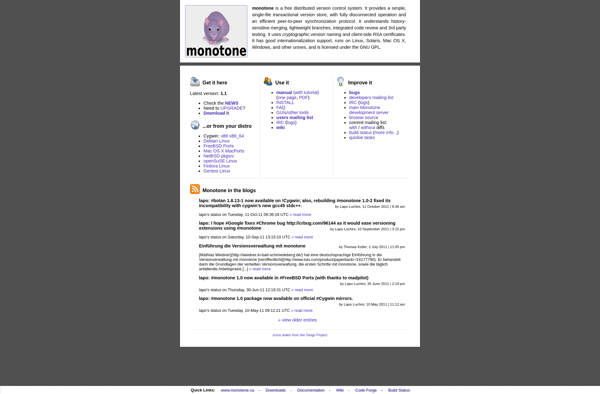Pijul
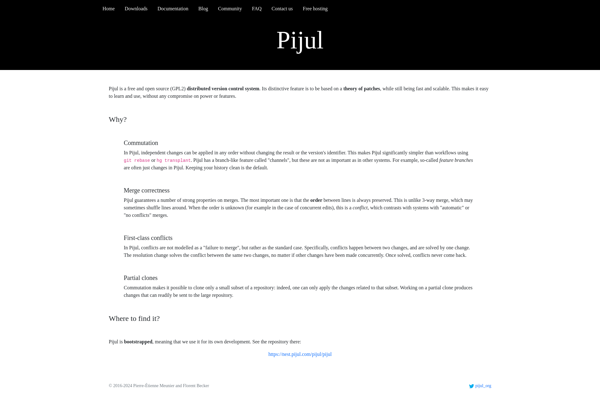
Pijul: Distributed Version Control Systems
A patch-based version control system improving collaboration with better merge handling, alternative to Git.
What is Pijul?
Pijul is an open-source distributed version control system that offers an alternative approach to software like Git. Instead of Git's content-addressable storage model, Pijul is built on a theory of patches and solvers developed specifically for version control.
The key difference with Pijul is in its merge capabilities. In systems like Git, merge conflicts arise frequently in distributed teams and solving these problems after they occur can be tedious. Pijul is designed to avoid such conflicts proactively. Its theory of patches allows it to calculate merges across multiple branches and predict conflicts before they actually happen.
This makes Pijul particularly well-suited for open source projects with many contributors editing the same files. It aims to reduce the friction and rework caused by frequent merging across branches. The developers of Pijul designed it to scale complexity exponentially better than alternatives as more contributors work together asynchronously.
Other capabilities offered by Pijul include: cryptographic certification of changes, lighter storage requirements, and simplified workflows for applying third-party patches. The Pijul project itself is developed openly on GitHub.
Pijul Features
Features
- Distributed version control
- Mathematical theory of patches
- Better handling of merges
- Supports branching and forking
- Cryptographic signing of commits
- Works offline
Pricing
- Open Source
Pros
Cons
Official Links
Reviews & Ratings
Login to ReviewThe Best Pijul Alternatives
Top Development and Version Control Systems and other similar apps like Pijul
Here are some alternatives to Pijul:
Suggest an alternative ❐Mercurial SCM
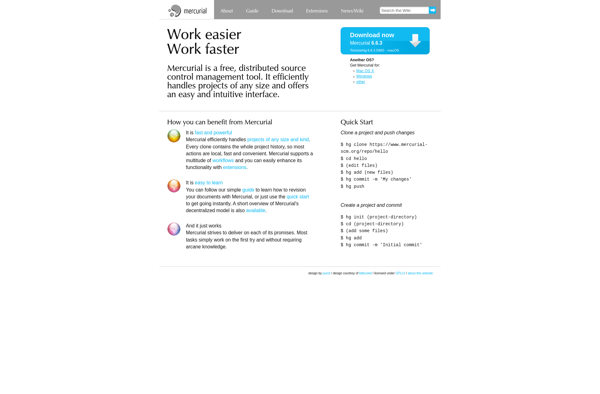
Perforce

Gogs
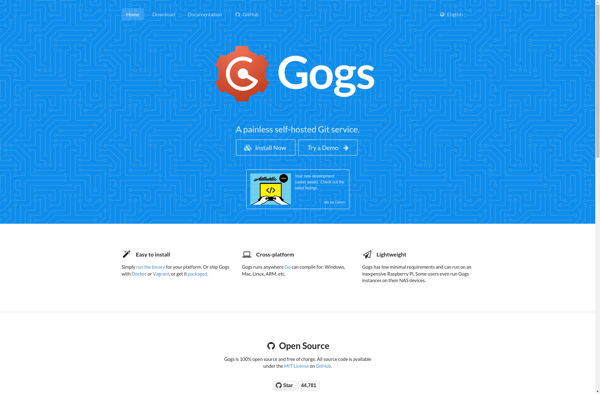
Apache Subversion
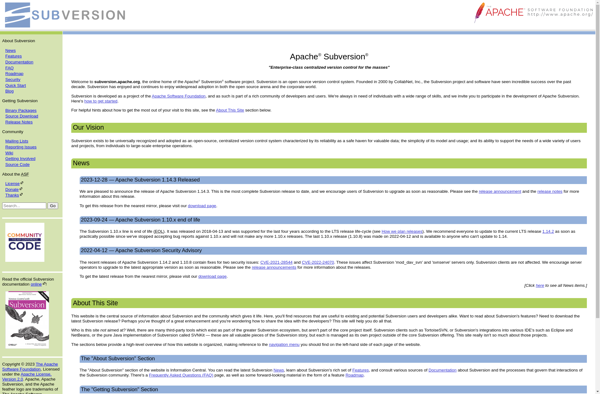
Fossil
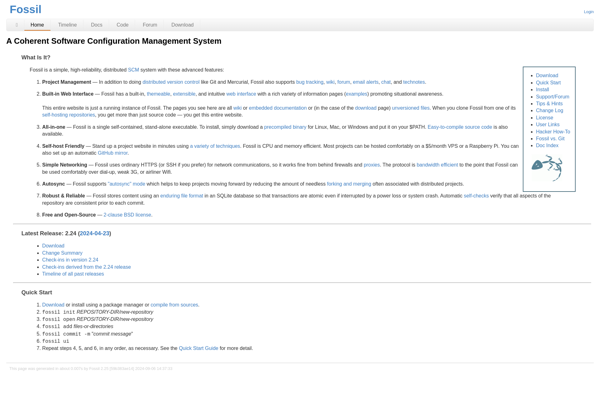
CVS (Concurrent Versions System)
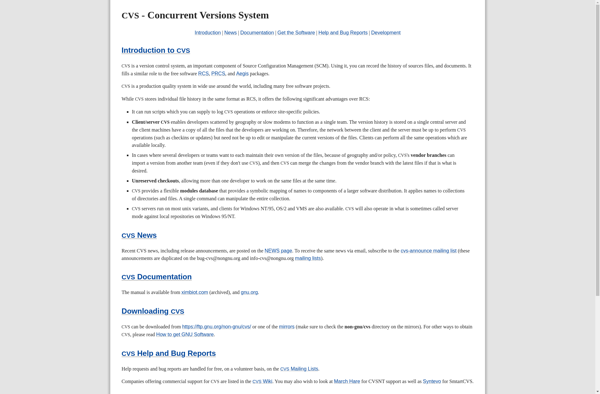
Plastic SCM
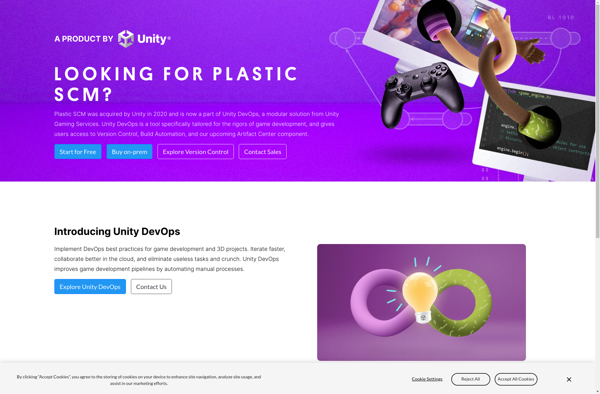
Veracity
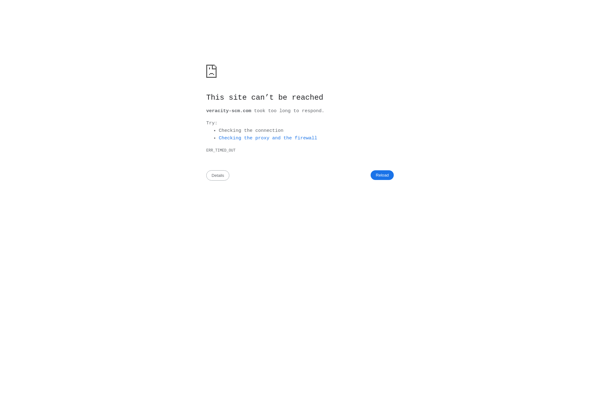
BitKeeper
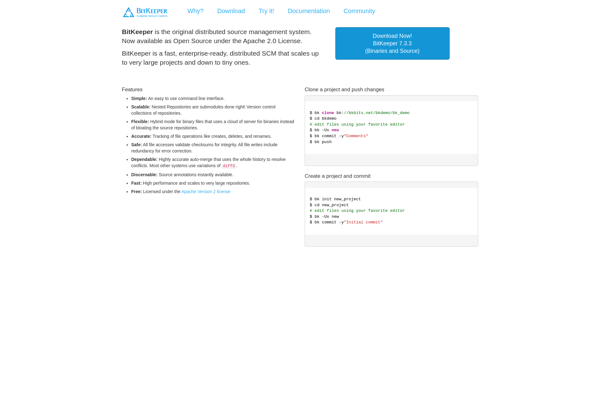
Darcs
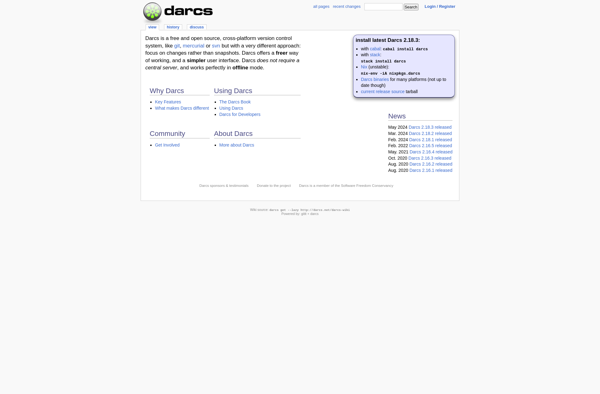
SourceAnywhere
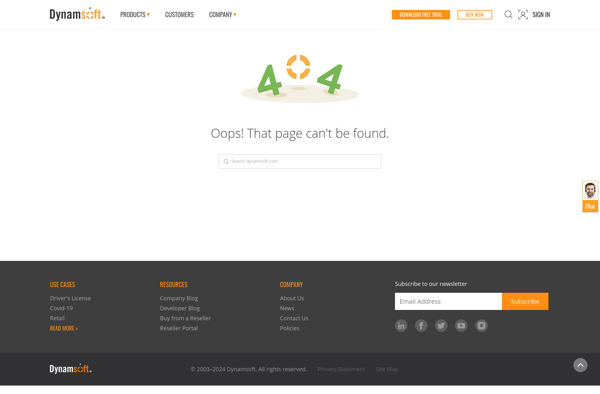
Monotone
